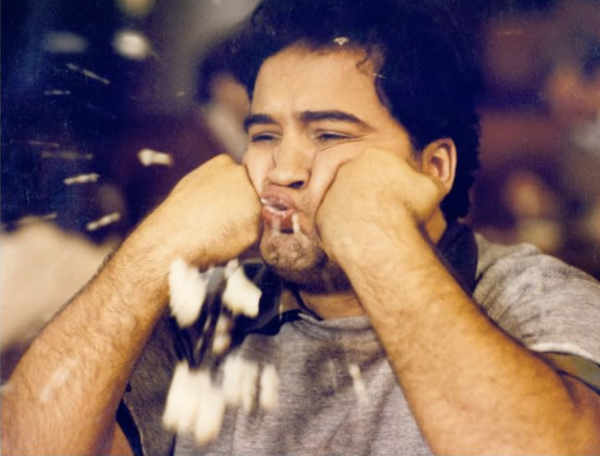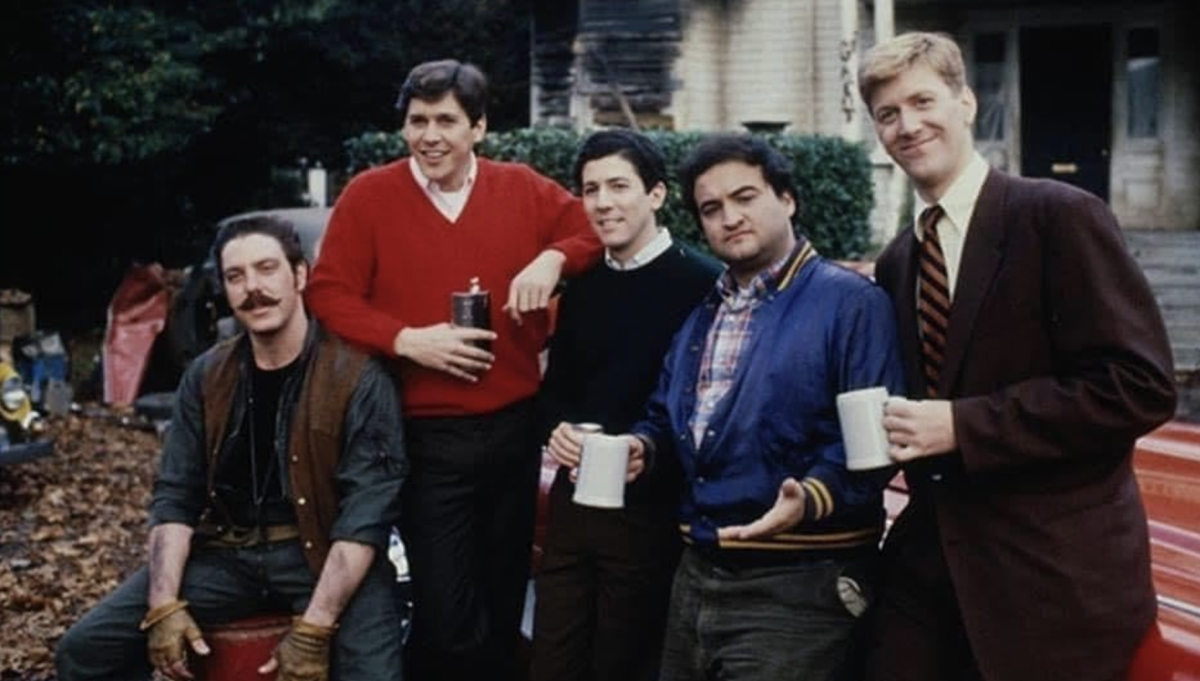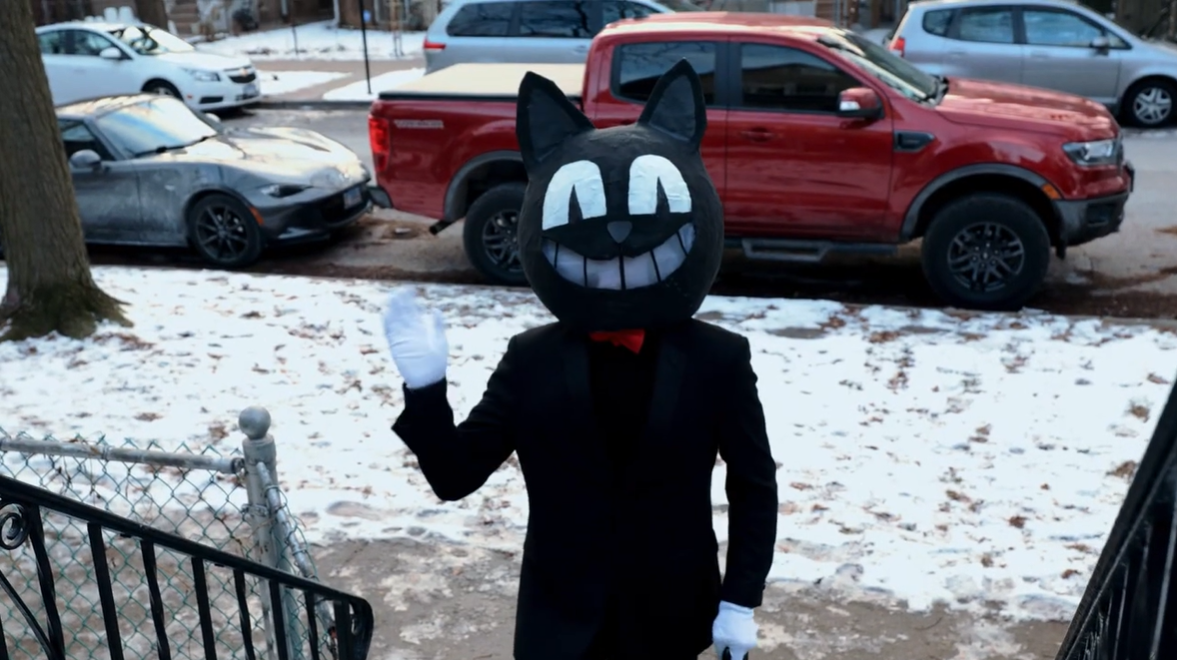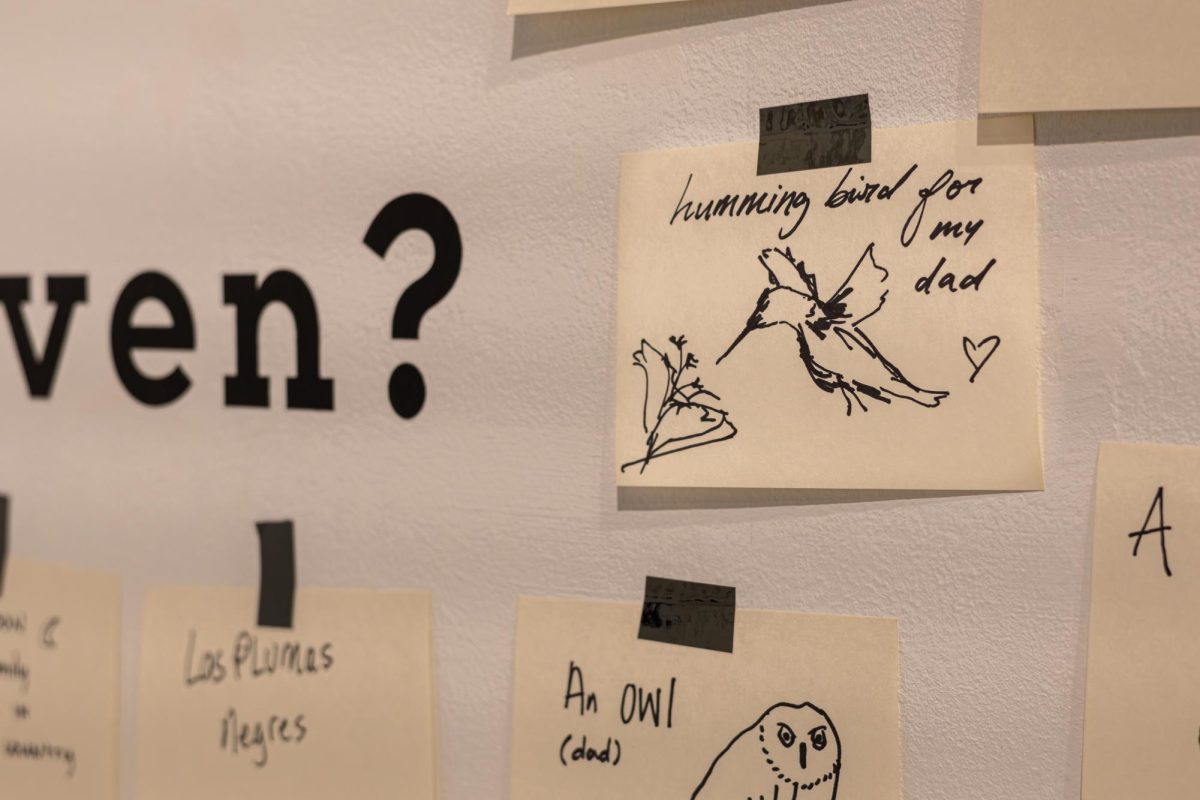Arguably one of the most influential college films in the zeitgeist of American cinema, “Animal House,” released in 1978, centers around the tumultuous experiences of so-called bottom-tier fraternity pledges at Faber, a fictional institution modeled after Dartmouth College.
As the University of Illinois begins its own school year and introduces a new crop of rushes into its Greek letter organizations, fans of “Animal House” may wonder — does this almost 50-year-old commentary on Greek life hold true?
The film opens as Larry “Pinto” Kroger (Tom Hulce) and Kent “Flounder” Dorfman (Stephen Furst) move into their dorm room, pontificating upon their glorious hopes for the upcoming semester.
The plucky freshmen begin the fraternity rush process, first attempting to brown-nose their way into Omega House, a fraternity known for its powerful alumni network and association with top sororities. Upon their dismissal to the rejects corner at uptight Omega’s first rush party, Kent and Larry reckon with the reality that they may need to set their sights a bit lower.
As Larry begins to succumb to defeat, Kent suggests paying a visit to Delta fraternity. It is established soon thereafter that Delta is a notorious sanctuary of alcoholism and mischief — and home to a guaranteed legacy bid for Kent.
Get The Daily Illini in your inbox!
The uptight and decidedly villainous Dean Vernon Wormer (John Vernon) puts it best — at Delta, “every Halloween, the trees are filled with underwear and every spring, the toilets explode.”
After some convincing from Kent, Larry agrees to pay a visit to the rickety Delta shack — and the two embark upon a crass, vulgar and positively whimsical journey.
At the Delta rush party, the audience is introduced to several colorful characters— the snarky, Abbott-and-Costello-reminiscent Otter (Tim Matheson) and Boon (Peter Riegert), the comparatively-upstanding Hoover (James Widdoes) — and notably the lovable and chaotic John “Bluto” Blutarski (John Belushi).

“Don’t worry about Bluto,” Otter once said. “Just keep your hands and feet away from his mouth.”
In spite of its lighthearted air, the film deals with issues spanning from race relations to sexual violence. Although it does not make the level of commentary expected from a modern-day audience and includes at-times problematic verbiage, it critiques fraternity culture in a way that is refreshing and appropriate for the late 1970s.
Following seemingly relentless disciplinary notices from Dean Wormer, Delta House faces a trial in front of a jury of its peers — resulting in an iconic and extremely quotable scene featuring the ever-witty Otter playing lawyer.
“You can’t hold a whole fraternity responsible for the behavior of a few sick, twisted individuals,” Otter pleaded. “For if you do, then shouldn’t we blame the whole fraternity system? And if the whole fraternity system is guilty, then isn’t this an indictment of our … entire American society? Well, you can do whatever you want to us, but we’re not going to sit here and listen to you bad mouth the United States of America. Gentlemen?”
When faced with the potential revocation of Delta’s charter or even dismissal of its members from Faber, the young men reckon with the sense of dread in various ways.
“Seven years of college down the drain,” Bluto, who was awarded a 0.0 GPA at midterms, said. “Might as well join the f—— Peace Corps.”
Otter, however, suggests that “this situation absolutely requires a really futile and stupid gesture be done on somebody’s part,” resulting in a hilarious vengeance scene that rounds out this low-brow masterpiece.
Although many fraternity members claim this movie to be an accurate portrayal of the college experience, it is important to note that the four — or seven — years you spend working towards a bachelor’s degree are customizable to your priorities. Keggers and disciplinary hearings are not part of everyone’s dream college lifestyle — but they do make for a hilarious 1970s comedy.











